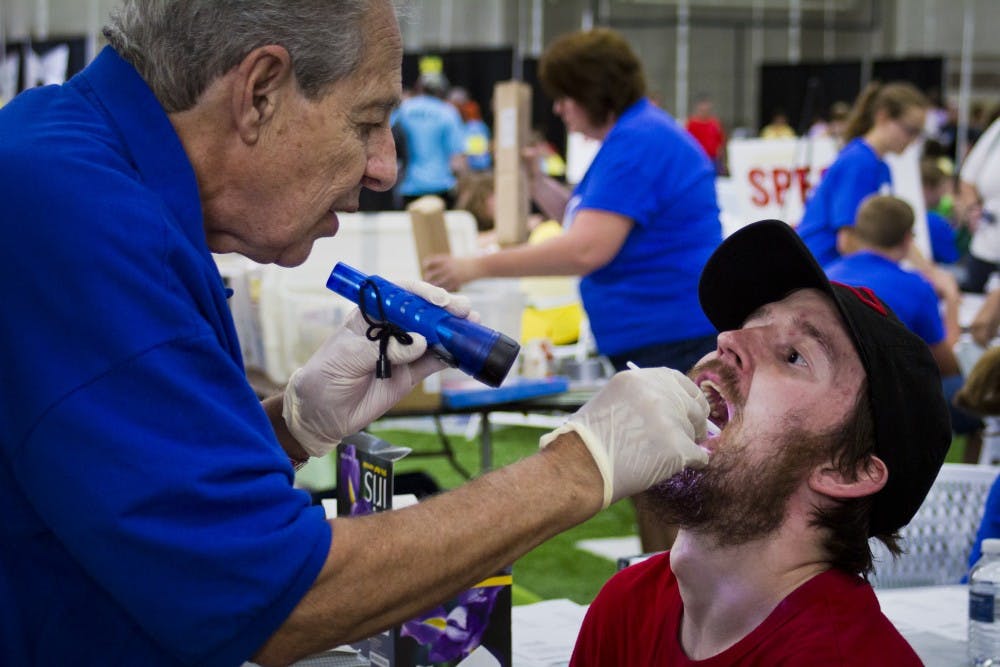Healthy Athletes Village booming with Special Olympics athletes on 'busiest' day of weekend

David White stood in the Central Michigan University Indoor Athletic Complex's Turf Bay Friday morning with tears in his eyes as he described what the Special Olympics Michigan Healthy Athletes Opening Eyes optometry program means to his 18-year-old son, Alex.
"It is really touching stuff," said White, of Montrose. "So many of the people here, young and old, come from less fortunate homes. They can't get seen by an eye or mouth doctor anywhere else but here. For our family, it is a convenience. It just warms my heart to see."
Alex White is one of the projected 500 Special Olympics Michigan athletes that will receive vital medical screenings on Friday as part of Healthy Athletes program. The makeshift clinic, known as Athlete Village and located in the Indoor Activities Center's Turf Bay, also processed approximately 250 athletes upon its opening on Thursday, according to Dr. James Seals.
Seals is one of the doctors volunteering with Health Athletes, and screened many of the patients in the village.
"It has been hectic in the early going. I like to think of it as organized chaos," Seals said. "We have seen so many people come in here with glasses that are either really busted up or not the correct prescription. The profession is all about correction. To be able to do this for people, you just know that you are doing the right thing for people that really need it."
Outside Turf Bay, the Healthy Athletes program set up two additional mobile health clinics in giant RVs for the overflow of patients. There, Mobile Clinic Operations Manager Kim Rankin worked with volunteers to manufacture lenses for athletes who needed new prescriptions.
"I do a lot of events like this one and this is by far my favorite one all year long," she said. "All of the people here, their heart is just in the right place. It was a little hard at first getting involved (seven years ago), but the organization was very welcoming and so are all the athletes."
Rankin said it was her perception that, in many cases, health professionals do not want to treat patients with disabilities.
"A lot of doctors don't want special needs people in their offices,' she said. "As far as we have come as a society, I think there is still a lot of stigma attached (to people with disabilities). The people who are here today are getting exceptional care and they are just like everyone else."
Seals and Rankin credited the more than 120 volunteers working the event with the organized side of the "organized chaos."
One volunteer, Gary VanAlstine, was helping out for the eighth consecutive year.
"This whole deal is as important to us (volunteers) as it is to the people here getting the help," VanAlstine said. "You are busy all day on this job, but you know it is a good way to spend your time. It is just the correct thing to do."
For volunteers like VanAlstine, setting aside the time to help the games run smoothly has a lasting impact, one that led White's son to accomplishments he never thought possible for Alex.
"We were trying to get Alex to ride his bike, but he kind of put it down for awhile," White said. "These games have given him confidence in his physical ability. I remember looking out the window one day and seeing him on that bike again. I know there is a direct connection there."






